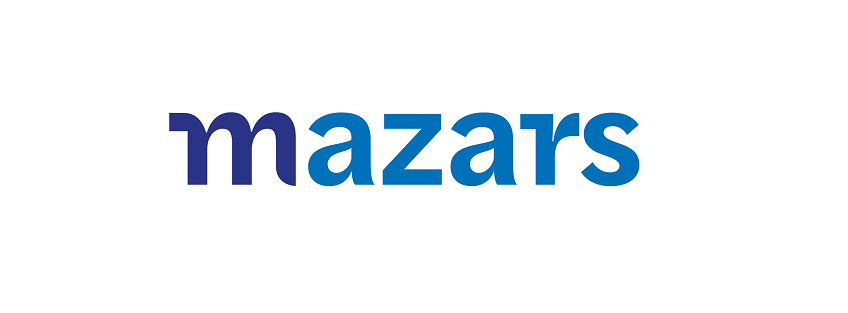Finance News by Mazars Romania - November 2021
Mon | 29.11.2021
Accounting/audit/tax
The automotive industry at the tipping-point – Mazars’ analysis
We often hear about major changes in the automotive industry, whether we are talking about electric or conventional vehicles, about what types of software will be built into our cars, or how much confidence will we have in the self-drive functions. Recently, such changes can be observed throughout the industry, but will this change our behaviour related to cars and mobility in the coming years?
We are witnessing an eco-wakening. Consumers want sustainability… if they can afford it
Countless manufacturers and governments have invested in hydrogen technology, which has seen a rise in recent years, with many hydrogen-powered cars being driven more and more often in different parts of the world. Regarding automobiles, we have many options in front of us, but what is very clear is the process of continuous stimulation of the use of environmentally friendly vehicles by the local authorities and environmental institutions.
New car registrations in Romania increased by 4.3% in the first nine months of this year, compared to the similar period in 2020, and electric, plug-in hybrid, and full hybrid cars reached a market share of 12% in the first nine months of this year, 1.8 times higher than the one they had in the same period last year (6.4%), reveals data from the Directorate of Driving Permits and Vehicle Registration (DRPCIV), processed by the Association of Automobile Manufacturers and Importers (APIA).
„The concept of sustainability is already globally extended, with all the automotive manufacturers trying to bring an improvement to the environment, by reducing carbon dioxide emissions. In Romania, we have two big automotive players, who are already making steps towards a sustainable future. Ford estimates that by mid-2026, 100% of its passenger vehicle range in Europe will be zero-emissions capable, all-electric or plug-in hybrid, and by 2030 all their vehicles will be electric. At the same time, Dacia also comes with an important update and launches the „Kilometrul Bine” platform, that emphasises the idea of corporate social responsibility.”, mentioned Ella Chilea, Audit Partner, Mazars Romania.
Read more info HERE.
Global compliance source of opportunity: builds trust and business reputation, reveals survey from Mazars
Mazars, the international audit, tax and advisory firm, launched the ‘Unlocking trust: why global compliance is on the business agenda’ study. Based on a survey of 892 senior accounting and tax compliance professionals working in multinational companies from 25 countries, the study highlights the opportunities and risks associated with compliance now and in the future.
Opportunity to create value
Compliance leaders tend to see compliance as an opportunity creator rather than just an obligation: 58% agree with this view. The opportunities compliance presents are significant: to create trust, bolster confidence and build reputation. Valuable prizes are on offer for meeting compliance requirements: 65% feel good compliance increases investor confidence; 64% say it increases client/customer trust; 61% say it helps build a good reputation.
The Romanian compliance landscape is constantly changing
No matter if a company is at the start of its journey or if it has already reached a mature level, Romania’s business and legal environment will impose various issues and obstacles upon their organisation’s compliance culture. In the past year and a half, many rules and regulations have changed and still continue to do so to ensure Romania’s market is in line with the European Union (EU) and international best practices, therefore, compliance needs to be a top priority for the executive team.
Whether we are talking about accounting systems, bookkeeping and accounting control for Romanian legal entities, preparation of tax returns required by the Romanian legislation or preparation of the annual financial statements in accordance with the Romanian Accounting Standards (RAS) and International Financial Reporting Standards (IFRS), every firm needs to have a compliance program put in place to ensure that all the requirements will be met.
Here, technology plays a very critical role, in terms of helping every compliance specialist with the constant visibility of compliance deadlines and the entire compliance process, complete oversight of compliance activities as well as providing them status reports to proactively manage and mitigate risk.
„Within the digital transformation strategy of Mazars, an important factor was tracking the fulfillment of the declarative obligations at the global level for the entities that are carrying out their activity in several countries. Thus, Mazars created inControl, a digital platform designed to ensure the transparency of the entire process of preparation, confirmation and submission of all accounting and tax reports to the authorities in the countries where the organisations operate. At the same time, the automated monitoring of their archival functions and the confirmation of their registration on the authorities' platforms, with the help of virtual assistants, confirm the efficiency of these processes.”, mentioned Luminița Bornoiu, Partner, Head of Outsourcing, Mazars Romania.
Read more info HERE.
The obligation to prepare the transfer pricing file in the context of an increasing occurrence of tax audits during FY2021 - Mazars’ analysis
Following the update of the classification criteria based on which a company is considered to be a large taxpayer, the number of companies to be administered by the General Directorate for the Administration of Large Taxpayers has reached 3,364 companies.
Taxpayers required to prepare the transfer pricing file during the current period
Who is subject to the obligation of preparing the transfer pricing file?
- Companies which fall under the category of large taxpayers and which perform transactions with affiliated parties that exceed certain annual materiality thresholds;
- Companies which fall under the category of large taxpayers (but which do not exceed the aforementioned annual materiality thresholds), as well as medium-sized taxpayers which exceed certain materiality thresholds.
Read more info HERE.
CEE Tax & Payroll insights, by Mazars
At the moment, within every business community, there is a need for every professional to be informed when it comes to the latest legislative changes, that are happening almost daily.
The CEE Tax & Payroll Newsletter aims on sharing Mazars’ latest news on tax, labour, and payroll legislation in Central and Eastern Europe, with the scope of helping you to prepare for the changes that could lie ahead.
The overview of the most important tax and payroll insights from Central and Eastern Europe will help you navigate more efficiently through the changes that occur in the following countries: Albania, Austria, Croatia, Czech Republic, Hungary, Poland, Romania, Russia, Slovakia, Slovenia, and Ukraine.
Read more info HERE.
Episode 3 of the Let’s talk luxury podcast, by Mazars
Luxury businesses have long promoted and sold pieces that are timeless, but that does not mean the way the sector operates should stay constant too.
In fact, the luxury sector is at a crossroads with brands looking for ways to meet new customer demands, tap into advanced technology and form cross-sector partnerships.
To better understand this business model makeover, Mazars launched Let’s talk luxury, a podcast series featuring global luxury experts. In the third episode of the Let’s talk luxury podcast, Kresse Wesling, co-founder of the luxury brand Elvis & Kresse, shares her expertise on transforming reclaimed materials, and how partnerships and technology can propel sustainable practices.
You can listen to episode 3 HERE.
This article is provided by our Finance Partner, MAZARS Romania
2025
-
November (1)
-
October (1)
-
September (1)
-
July (1)
-
June (1)
-
April (1)
-
February (2)
-
January (1)
2024
-
November (1)
-
October (1)
-
July (1)
-
May (1)
-
March (1)
-
February (1)
-
January (1)
2023
-
November (1)
-
September (2)
-
August (2)
-
June (1)
-
May (1)
-
April (2)
-
March (1)
-
February (2)
-
January (2)
2022
-
December (3)
-
November (4)
-
October (3)
-
September (4)
-
August (3)
-
July (6)
-
June (4)
-
May (4)
-
April (8)
- Marketing News by diARK - April 2022
- Finance News by Mazars Romania - April 2022
- Experience the Perfect Chauffeur Transfer with David Intercar
- Mobility News by Business Lease - April 2022
- NRCC MEMBER IN SPOTLIGHT, WOLTERS KLUWER
- Crowe Romania and DeclaratiaUnica.ro engage in the automation of the single return form and the offering of personalized consultancy
- Cryptocurrency News by Bitcoin Romania, April 2022
- Legal News by BBW LAW - April 2022
-
March (6)
-
February (4)
-
January (5)
2021
-
December (3)
-
November (4)
-
October (2)
-
September (2)
-
August (1)
-
July (5)
-
June (3)
-
May (5)
-
April (4)
-
March (7)
- Cryptocurrency News by Bitcoin Romania, April 2021
- HR News by CNA International Executive Search Romania, March
- Real Estate News by CTP Invest, March 2021
- Sale-Purchase of Agricultural Land Located Outside Build-Up Areas
- MEET THE NRCC BOARD CANDIDATES 2021
- Fleet Management – Complete Makeover or Small Adjustments?
- Cryptocurrency News by Bitcoin Romania, March 2021
-
February (5)
-
January (6)
2020
-
December (2)
-
October (2)
-
September (3)
-
August (2)
-
July (6)
- NRCC Member in Spotlight Interview - Autonom
- Insolvency Proceedings: New Rules
- Member in Spotlight, UniCredit Bank
- Financing opportunities overview for large enterprises, SMEs and other organizations
- Companies: Simplification of Formalities
- Call for Leaders | What is your readiness score to benefit from the EU SURE initiative?
-
June (5)
-
May (8)
- The State of Alert. New rules for the collective proceedings
- The Retail Industry
- EU grants up to 6 Mil Euro for SME-s investment projects
- Member in spotlight, Heisterkamp Transportation Solutions
- State of Alert...What Is New
- The forced transformation of the automotive industry – Mazars analysis
- State of Alert in Romania
- Reducing the Impact of the Pandemic
-
April (6)
-
March (2)
2019
-
November (2)
-
July (1)
-
June (1)
-
March (2)
-
January (1)
2018
-
October (2)
-
September (1)
-
August (1)
-
July (3)
-
June (2)
-
May (1)
-
April (1)
-
March (3)
-
February (13)
- NRCC Elections 2018 - Elena Badea
- NRCC Elections 2018 - Loreda Dragomir
- NRCC Elections 2018 - Simina Fodor
- NRCC Elections 2018 - Manuel Herraiz Orti
- NRCC Elections 2018 - Tom Leene
- NRCC Elections 2018 - Mircea Moga
- NRCC Elections 2018 - Ronald Oort
- NRCC Elections 2018 - Razvan Pascu
- NRCC Elections 2018 - Alexandru Popescu
- NRCC Elections 2018 - Mihaela Tudor
- NRCC Elections 2018 - Loredana Van de Waart
- NRCC Elections 2018 - Edwin Warmerdam
- NRCC Elections 2018 - Philip Aarsman
2017
-
November (1)
-
September (1)
-
August (2)
-
May (1)
-
April (2)
-
March (1)
2016
-
November (1)
-
September (8)
-
June (1)
-
February (2)








